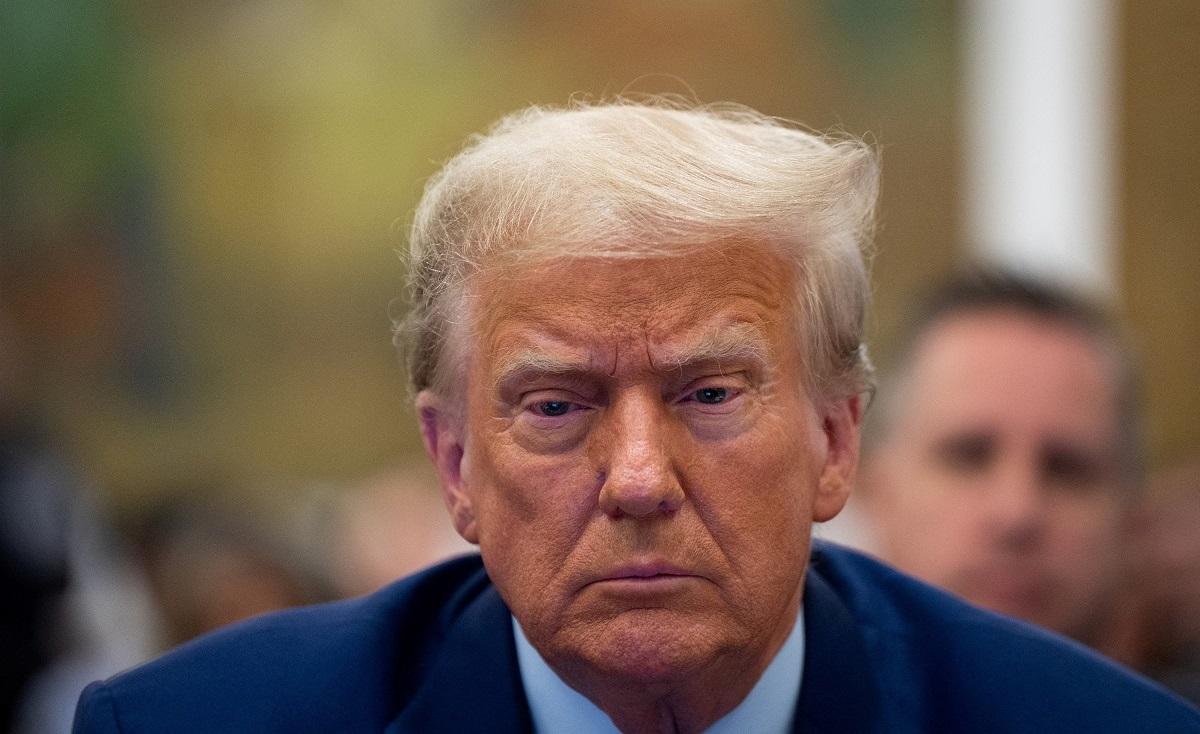US Supreme Court to hear Trump appeal of Colorado ballot disqualification

WASHINGTON - The U.S. Supreme Court on Friday agreed to hear Donald Trump's appeal of a judicial decision barring the former president from the state's Republican primary ballot, taking up a politically explosive case with major implications for the 2024 presidential election.
At issue is the Colorado Supreme Court's Dec. 19 ruling disqualifying Trump from the state's primary ballot based on language in the U.S. Constitution's 14th Amendment for engaging in insurrection, involving the Jan. 6, 2021, attack by his supporters on the U.S. Capitol.
The justices took up the case with unusual speed. Trump, the frontrunner for his party's nomination to challenge Democratic President Joe Biden in the November election, filed his appeal on Wednesday. The justices indicated they would fast-track a decision, scheduling oral arguments for Feb. 8. The Colorado primary is scheduled for March 5.
The state court, acting in a challenge to Trump by Republican and unaffiliated voters in Colorado, found him ineligible for the presidency under a constitutional provision that bars anyone who "engaged in insurrection or rebellion" from holding public office, barring him from the primary ballot.
The U.S. Supreme Court did not act on a separate appeal of the state's court decision by the Colorado Republican Party.
The Colorado case thrusts the Supreme Court - whose 6-3 conservative majority includes three justices appointed by Trump - into the unprecedented and politically fraught effort by his detractors invalidate his bid to reclaim the White House.
Colorado's Secretary of State Jena Griswold praised the Supreme Court's decision to quickly take up the case.
"Coloradans, and the American people, deserve clarity on whether someone who engaged in insurrection may run for the country's highest office," Griswold said. "I urge the court to prioritize this case and issue a ruling as soon as possible,"
Noah Bookbinder, president of Citizens for Responsibility and Ethics in Washington, a watchdog representing the challengers to Trump, added, "We're glad that the Supreme Court will definitively decide whether Donald Trump can be on the ballot. We look forward to presenting our case and ensuring the constitution is upheld."
Trump representatives did not immediately respond to requests for comment.
Many Republicans have decried the disqualification drive as election interference, while proponents of disqualification have said holding Trump constitutionally accountable for an insurrection supports democratic values. Trump already faces criminal charges in two cases related to his effort to overturn his 2020 election loss to Biden.
Trump also has appealed to a Maine state court a decision by that state's top election official barring him from the primary ballot under the same constitutional provision at issue in the Colorado case.
High stakes for Supreme Court
While the Colorado case could hamper Trump's bid to win back the presidency, it also has major implications for the justices. Given the political nature of the dispute, they run the risk of appearing partisan whichever way they lean.
Their action will shape a wider effort to disqualify Trump from other state ballots as the 2024 election draws closer. Colorado and Maine are both Democratic-leaning states. Nonpartisan U.S. political analysts forecast that both states are unlikely to back a Republican presidential candidate on Nov. 5. But there are efforts underway in other states - including competitive Michigan - that could shape the election's outcome.
The Colorado court's ruling marked the first time in history that Section 3 of the 14th Amendment - the so-called disqualification clause - was used to deem a presidential candidate ineligible.
Section 3 bars from holding office any "officer of the United States" who took an oath "to support the Constitution of the United States" and then "engaged in insurrection or rebellion against the same, or given aid or comfort to the enemies thereof."
The amendment was ratified in the aftermath of the American Civil War of 1861-1865 in which Southern states that allowed the practice of slavery rebelled in a bid for secession.
Among other arguments, Trump's lawyers have said that Section 3 does not apply to U.S. presidents, that the question of presidential eligibility is reserved to Congress, and that he did not participate in an insurrection.
The Republican and unaffiliated voters who sued to disqualify Trump from the ballot disagree. In a filing on Thursday, they emphasized the lower court's findings that Trump's intentional "mobilizing, inciting, and encouraging" of an armed mob to attack the Capitol meets the legal definition in Section 3.
"This attack was an 'insurrection' against the Constitution by any standard," they said in the filing.
The Jan. 6 attack was an attempt by Trump's supporters to prevent Congress from certifying Biden's election victory. Trump gave an incendiary speech to his supporters before the attack, repeating his false claims of widespread voting fraud in the election.
Biden in a speech in Pennsylvania on Friday cast Trump as a threat to American democracy, one of the themes of his re-election campaign. Biden specifically made reference to Trump's speech before the Capitol riot, whose three-year anniversary is on Saturday. Biden also suggested that a vote for Trump this year was a vote for a dictatorship. — Reuters




